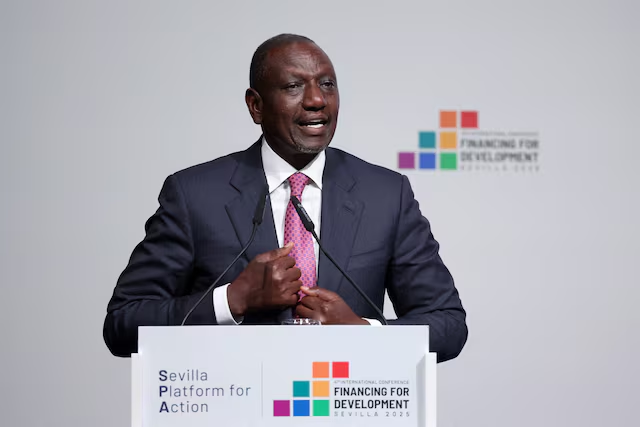Kenya to Privatise State Assets in Push for Private Sector Investment — President Ruto

Nairobi, Kenya – Kenya is preparing to privatise several state-owned enterprises as part of a sweeping economic reform aimed at stimulating private sector investment and reducing the government’s financial burden, President William Ruto announced.
Speaking at a business forum on Monday, President Ruto said the government is committed to creating a more competitive and efficient economy by reducing its footprint in areas where the private sector can operate more effectively.
“We are opening up space for private investors to come in where the government has no business being,” Ruto declared. “This will enhance productivity, improve service delivery, and help us manage our debt more responsibly.”
The move comes amid growing concerns over Kenya’s rising public debt, which has placed pressure on government finances and limited its capacity to invest in critical sectors such as healthcare, infrastructure, and education.
📉 From State Control to Market Dynamism
The government has identified over 30 state-owned enterprises that could be eligible for privatisation. These include parastatals in energy, transport, agriculture, and manufacturing. Though a full list has not yet been published, the Kenya Pipeline Company, Kenya Ports Authority, and various sugar companies are reported to be under review.
Privatisation, Ruto said, will not only unlock capital for reinvestment in essential services but also improve efficiency by introducing profit-driven management practices.
The process will be overseen by the newly restructured Privatisation Commission, which was recently strengthened through legislation to accelerate the sale of non-strategic state firms.
💼 Investor Interest and Public Assurance
According to sources within Kenya’s Ministry of Finance, several international and regional investors have already expressed interest in participating in the upcoming sales. The government plans to ensure a transparent process that includes stakeholder consultations and public accountability measures.
To allay fears over job losses and foreign dominance, Ruto assured the public that the government would protect workers’ rights and retain stakes in strategic sectors.
“This is not a fire sale. It’s a strategic shift,” he emphasized. “We will ensure that key national interests are safeguarded, and that Kenyans benefit first.”
🌍 A Regional Trend
Kenya’s move mirrors a broader trend across Africa, where countries are increasingly turning to the private sector to drive growth amid shrinking fiscal space. Nigeria, Ghana, and Egypt have all taken steps toward privatisation in recent years, with varying degrees of success.
Economic analysts see this as a positive signal to markets. “Privatisation, if done right, could bring in fresh capital, boost productivity, and create jobs,” said James Murithi, an economist with Nairobi-based firm EconInsight. “The key is transparency and political will.”






